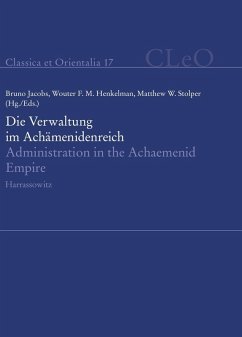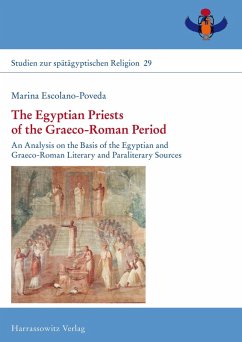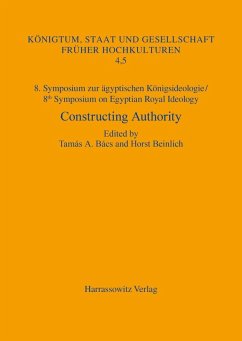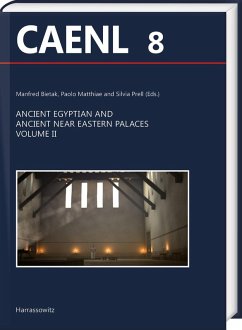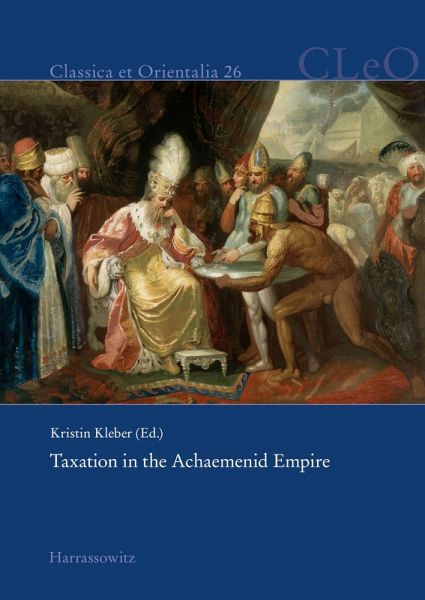
Taxation in the Achaemenid Empire (eBook, PDF)

PAYBACK Punkte
0 °P sammeln!
Achaemenid Studies fall between the academic divisions of Ancient Near Eastern Studies and Archeology, Ancient History, Classical Philology, Egyptology and Semitic Languages. No single scholar can cover the many cultures that were united under the umbrella of this huge empire alone and in-depth. Interdisciplinary approaches are a necessity in order to tackle the challenges that the diverse textual records in Akkadian, Demotic Egyptian, Elamite, Aramaic and Greek present us with. This volume, the proceedings of a conference on taxation and fiscal administration in the Achaemenid Empire held in ...
Achaemenid Studies fall between the academic divisions of Ancient Near Eastern Studies and Archeology, Ancient History, Classical Philology, Egyptology and Semitic Languages. No single scholar can cover the many cultures that were united under the umbrella of this huge empire alone and in-depth. Interdisciplinary approaches are a necessity in order to tackle the challenges that the diverse textual records in Akkadian, Demotic Egyptian, Elamite, Aramaic and Greek present us with. This volume, the proceedings of a conference on taxation and fiscal administration in the Achaemenid Empire held in Amsterdam in 2018, contains contributions on Babylonia, Egypt, the Levant, Asia Minor and Arachosia, written by specialists in the respective languages and cultures. The question that lies at the basis of this volume is how the empire collected revenue from the satrapies, whether and how local institutions were harnessed to make imperial rule successful. The contributions investigate what kind of taxes were imposed in what area and how tax collection was organized and administered. Since we lack imperial state archives, local records are the more important, as they are our only reliable source that allows us to move beyond the famous but unverifiable statement on Achaemenid state finances in Herodotus, Histories 3, 89-97.
Dieser Download kann aus rechtlichen Gründen nur mit Rechnungsadresse in A, B, BG, CY, CZ, D, DK, EW, E, FIN, F, GR, HR, H, IRL, I, LT, L, LR, M, NL, PL, P, R, S, SLO, SK ausgeliefert werden.




